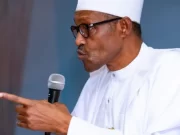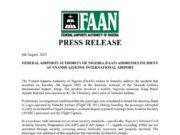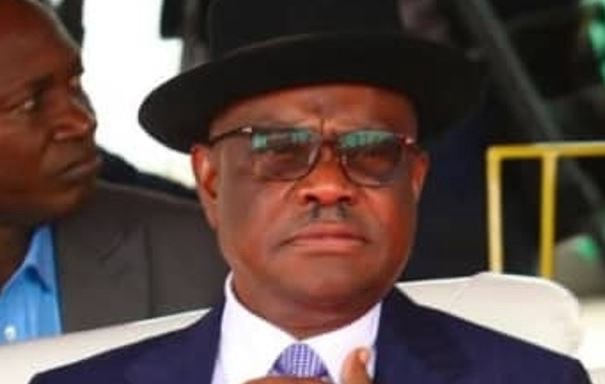At the unveiling of the new Sunrise Waterpark in Abuja, Federal Capital Territory (FCT) Minister Nyesom Wike declared tourism a central pillar of Nigeria’s economic revival under President Bola Tinubu’s ‘Renewed Hope’ agenda. The government is actively extending incentives to private investors to unlock Abuja’s vast—but largely untapped—tourism potential.

Untapped Assets, Unlimited Prospects
Minister Wike highlighted key destinations such as the Yaba fishing site, Ushafa Pottery Centre, and the iconic Millennium Tower, urging private-sector engagement to breathe new life into these sites and elevate Abuja’s profile as a tourism hub .
In a more recent development, Wike reaffirmed Abuja’s ambitions by proposing strategic partnerships with countries like Italy and the UAE, drawing inspiration from global tourism leaders to emulate their success models .
Institutional Push for Sectoral Growth
Tourism expert Ahmed Sule outlined the necessity for a comprehensive Tourism Development Master Plan, urging infrastructure development, improved transport, and robust policy frameworks to elevate the sector’s link to GDP growth in 2025 .
Earlier in the year, summit speakers celebrated Nigeria’s cultural richness—over 250 ethnic groups, 850 km of coastline, and thousands of festivals—while noting that tourism’s contribution stood at just 3.9 percent of GDP. The opportunity to raise that number to over $5 billion by 2029, with a 10.6 percent yearly growth rate, was emphasized as both achievable and transformative .
Overcoming Persistent Roadblocks
Despite the nation’s immense potential, significant barriers remain:
In 2023, only 1.2 million international visitors arrived in Nigeria—a fraction compared to South Africa’s 8.48 million and Kenya’s 1.95 million . Deep-rooted issues such as infrastructure deficits, weak safety perceptions, and inconsistent hospitality standards continue to deter foreign and domestic travelers alike . Voices from within and outside Nigeria highlight how insecurity and poor service infrastructure impede tourism’s potential to contribute to national revenue and employment .
Sporting Tourism: A Niche with Scale
Wike’s recent visit to IBB Golf Club in Abuja underscores the broader vision—leveraging sports tourism and elite recreational venues to attract international golfers and conferences. He emphasized public‑private partnerships, citing Julius Berger as a potential managerial collaborator, to elevate standards and operations at iconic properties .
Why Tourism Should Be Nigeria’s Strategic Engine
Economic diversification
Reduces overreliance on oil; taps into a high-growth global sector worth $10 trillion in 2023 .
Job and foreign-exchange generation
Creates employment and financial inflows across hospitality, events, and transportation industries.
Global image and soft power
Enhances Nigeria’s cultural footprint via festivals, heritage, and entertainment.
Youth engagement and innovation
Aligns with Nigeria’s demographic profile—70% under 30 years old—and fuelled by fast-growing tourism startups .
A Roadmap for Realisation
🔸 Government Role
Fast-track and implement a Tourism Development Master Plan in partnership with FCT and national tourism authorities. Reform the NIHOTOUR Act to decentralize regulatory oversight and strengthen stakeholder collaboration for compliance and quality control .
🔸 Security & Infrastructure
Significantly improve road networks, power supply, and travel safety to transform domestic and international perception. Prioritize investments in regions with untapped potential, including rural cultural heritage sites such as Ado‑Awaye and Obudu Plateau .
🔸 Marketing & Branding
Relaunch and amplify the Tour Nigeria brand, scaling digital campaigns and diaspora outreach to showcase festivals and natural attractions .
🔸 Youth & Private-Sector Participation
Incentivize young entrepreneurs by expanding tourism-based startup funding and capacity development. Elevate public–private partnership models for flagship venues like waterparks and golf clubs.
With proper policy execution and stakeholder unity, Nigeria’s tourism sector holds the potential to transform the national economy—driving GDP growth, generating jobs, enhancing foreign exchange earnings, and fostering a positive global image. The journey from untapped possibility to economic power is within reach—but it will require bold vision and coordinated investment.
Nigeria isn’t just rich in oil—it’s rich in culture, nature, and opportunity. Tourism could be the story that finally redefines its global presence.
We provide insightful, in‑depth coverage of global trends, economies, and cultural transformation—bringing you stories that shape tomorrow’s world.


























